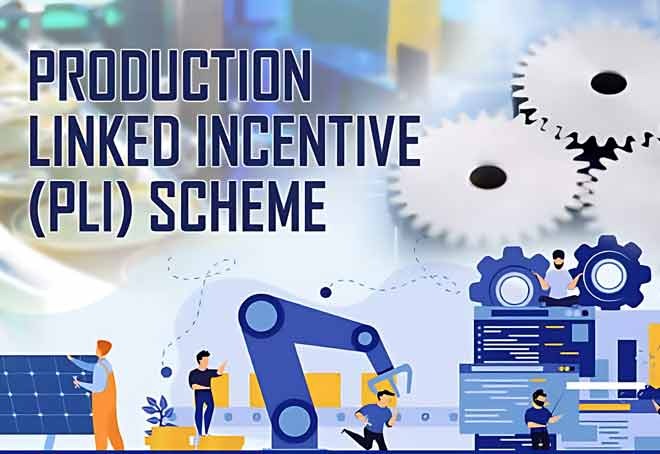
Follow WOWNEWS 24x7 on:

India’s ambitious Production Linked Incentive (PLI) scheme is proving to be a game-changer for the country’s industrial landscape. With Rs 21,689 crore in incentives disbursed across 12 sectors as of July 31, 2025, the initiative is driving a surge in manufacturing output, export volumes, and job creation. The scheme, launched in 2021 with an outlay of Rs 1.97 lakh crore, is designed to make Indian industries globally competitive by rewarding incremental production and investment.
Key Highlights From The Latest Update
- Rs 21,689 crore in cumulative incentives disbursed across 12 sectors
- 806 projects approved under the PLI scheme across 14 sectors
- Rs 1.90 lakh crore in investments realized till June 2025
- Incremental production and sales crossed Rs 17 lakh crore
- Export volumes surged past Rs 7.5 lakh crore
- Over 12.3 lakh direct and indirect jobs created nationwide
Sector-Wise Impact And Growth Trends
The PLI scheme’s influence is being felt across a wide range of industries, with electronics and pharmaceuticals emerging as standout performers:
- Mobile phone production grew by 146 percent in value between FY21 and FY25
- Mobile exports jumped nearly eightfold, from Rs 22,870 crore in FY21 to Rs 2 lakh crore in FY25
- The pharmaceutical sector reported cumulative sales of Rs 2.66 lakh crore over three years
- Pharma exports reached Rs 1.70 lakh crore, helping India transition from a net importer to a net exporter of bulk drugs
- Other sectors benefiting include IT hardware, medical devices, telecom, food processing, white goods, drones, specialty steel, textiles, and automobiles
Policy Design And Implementation Efficiency
The success of the PLI scheme is not just about numbers—it’s also about execution. The government has introduced several measures to ensure timely support and ease of access:
- Quarterly disbursement of claims to maintain liquidity for manufacturers
- Online application systems to streamline approvals and reduce paperwork
- Simplified compliance requirements to encourage participation from mid-sized firms
- Faster regulatory clearances to accelerate project timelines
These structural reforms have made the scheme more accessible and effective, especially for emerging players in high-tech and export-oriented sectors.
Investment Momentum And Strategic Vision
The Rs 1.90 lakh crore in realized investments reflects the scheme’s ability to attract large-scale capital inflows:
- Global and domestic firms have committed to expanding manufacturing capacity in India
- Events like SEMICON India 2024 have showcased India’s growing semiconductor ecosystem
- Companies like Ola Electric are leveraging the PLI framework to scale up electric vehicle production
- Specialty steel and textile sectors have seen strong participation, with 109 and 74 approved applications respectively
This investment momentum aligns with India’s broader vision of becoming a global manufacturing and technology hub.
Challenges And Road Ahead
Despite its success, the PLI scheme faces certain challenges that need to be addressed for sustained impact:
- Some sectors have reported delays in disbursement due to compliance bottlenecks
- Design and software issues in EV models have raised concerns about product quality
- Ensuring long-term consumer trust and global competitiveness will require continuous innovation and regulatory vigilance
The government is expected to refine the scheme further, incorporating feedback from industry stakeholders and expanding support to emerging sectors like green hydrogen and advanced robotics.
Conclusion: A Transformative Blueprint For Industrial Growth
India’s PLI scheme is no longer just a policy—it’s a movement reshaping the country’s industrial future. With strong financial backing, streamlined processes, and sectoral diversity, the initiative is delivering on its promise of boosting manufacturing, exports, and employment. As the scheme evolves, it holds the potential to position India as a resilient and innovation-driven global manufacturing powerhouse.
Sources: IBTimes, The Week, ENewsTime, NewKerala


